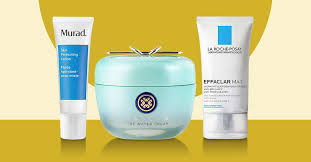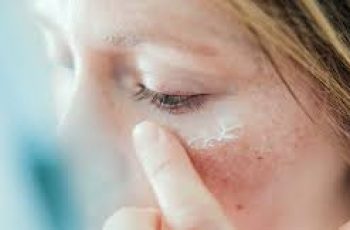
Moisturizers That Help Prevent Dry, Flaky Skin Year-Round: A Comprehensive Guide
Dry, flaky skin is one of the most common skincare complaints, and it can be incredibly frustrating to deal with. Whether it’s caused by the harsh winter weather, the drying effects of certain skincare products, or underlying skin conditions like eczema or psoriasis, dry skin can leave your complexion looking dull, irritated, and uncomfortable. Fortunately, finding the right moisturizer can make all the difference in keeping your skin hydrated and healthy throughout the year.
But what exactly causes dry skin, and how can you choose the right moisturizer to restore hydration and nourishment to your skin? In this comprehensive guide, we’ll delve into the root causes of dry skin, share expert-recommended moisturizers, and give you tips on how to choose the best products for your skin type and specific needs.
What Causes Dry Skin?
Dry skin, also known as xerosis, can occur for a variety of reasons, ranging from environmental factors to skin conditions and even aging. Understanding the causes of dry skin can help you address it effectively and find the right solutions to restore your skin’s moisture balance.
1. Skin Type and Genetics
One of the most significant factors contributing to dry skin is your skin type. Some individuals naturally have drier skin, which is primarily determined by genetics. People with dry skin have fewer sebaceous (oil) glands in their skin, which means their skin produces less natural oil. Oil is essential for keeping the skin lubricated and hydrated. Without enough oil production, the skin is more prone to moisture loss, leading to dryness.
2. Aging
As we age, our skin undergoes several changes, one of the most significant being a reduction in natural oil production. After the age of 25, collagen and elastin production slows down, and the skin becomes thinner. This reduced oil production, combined with the loss of elasticity, makes it more challenging for the skin to retain moisture. As a result, dry and flaky skin becomes more prevalent, especially in older adults.
3. Environmental Factors
Environmental conditions play a significant role in the moisture levels of our skin. Cold weather, low humidity, and exposure to wind can all cause the skin to become dehydrated. In winter months, the air tends to be drier, and we often turn up the heat indoors, which can further strip moisture from the skin. Prolonged exposure to hot water, such as long, hot showers or baths, can also deplete the skin’s natural oils, leading to dryness.
Additionally, excessive sun exposure can damage the skin’s moisture barrier, leading to dehydration and premature aging. Ultraviolet (UV) rays from the sun can break down collagen and elastin fibers in the skin, making it more difficult for the skin to retain moisture.
4. Skin Conditions
Certain skin conditions can also contribute to dry skin. Eczema, psoriasis, and dermatitis are all conditions that can cause the skin to become inflamed, itchy, and dry. These conditions disrupt the skin’s natural barrier, making it harder for the skin to lock in moisture. People with these conditions often struggle with extremely dry patches, red, flaky skin, and irritation.
5. Harsh Skincare Products
The skincare products you use can also affect the moisture levels of your skin. Harsh products that strip the skin of its natural oils, such as cleansers with strong detergents or alcohol-based toners, can exacerbate dryness. Over-exfoliating or using products with high concentrations of active ingredients (like retinoids or alpha-hydroxy acids) can also cause the skin to become dehydrated. It’s essential to avoid products that may compromise the skin’s moisture barrier, as this can worsen dry skin over time.
6. Medical Conditions and Medications
Certain medical conditions and medications can affect your skin’s ability to retain moisture. For example, thyroid conditions, diabetes, and other chronic illnesses can contribute to skin dryness. Additionally, medications such as diuretics, antihistamines, and acne treatments can have a dehydrating effect on the skin. If you suspect that a medical condition or medication is contributing to your dry skin, it’s essential to consult with a healthcare professional.
How to Choose the Best Moisturizer for Dry Skin
Selecting the right moisturizer for dry skin can be a daunting task, especially with the abundance of products available on the market. However, with the right knowledge, you can find a moisturizer that will keep your skin hydrated and nourished all day long. Here are some essential tips for choosing the best moisturizer for dry skin:
1. Avoid Irritants
When choosing a moisturizer for dry skin, it’s crucial to avoid products that contain ingredients known to be irritating or drying. Harsh ingredients like alcohol, fragrances, and sulfates can strip moisture from the skin and cause further irritation. Instead, opt for moisturizers that are free from these irritants and are labeled as hypoallergenic or fragrance-free. Products that are designed for sensitive skin are often a safer bet for those with dry skin.
2. Look for Hydrating Ingredients
The most effective moisturizers for dry skin are those that contain powerful hydrating ingredients. Hyaluronic acid is one of the best ingredients for dry skin, as it attracts moisture to the skin and helps it retain hydration. Ceramides are also essential for dry skin because they help restore the skin’s natural barrier and prevent moisture loss. Other ingredients to look for include glycerin, squalane, aloe vera, shea butter, and colloidal oatmeal. These ingredients work to replenish and lock in moisture, leaving your skin feeling soft and hydrated.
3. Consider Your Skin Type
Not all dry skin is the same, so it’s essential to consider your specific skin type when choosing a moisturizer. If your skin is very dry and sensitive, you may need a richer, thicker cream or ointment to provide extra hydration and repair the skin barrier. On the other hand, if your skin is only mildly dry or prone to oiliness, you may prefer a lighter lotion or gel-based moisturizer that won’t feel greasy on the skin.
For those with acne-prone dry skin, look for a non-comedogenic moisturizer that won’t clog pores. Gel-based moisturizers are often a good choice for oily or acne-prone skin, as they provide hydration without the added heaviness of creams and oils.
4. Opt for Fragrance-Free and Hypoallergenic Options
Since dry skin can often be irritated or inflamed, it’s essential to choose moisturizers that are gentle and soothing. Look for products that are labeled hypoallergenic and fragrance-free, as fragrances and allergens can trigger skin reactions or exacerbate dryness. Always patch-test new products to ensure they don’t cause irritation before applying them all over your face or body.
5. Look for Sun Protection
Dry skin can become even more vulnerable to environmental damage, including the harmful effects of UV radiation. As such, choosing a moisturizer with built-in broad-spectrum SPF is a great way to protect your skin from both UVA and UVB rays. Sunscreen helps prevent premature aging, dark spots, and other skin issues that can worsen dry skin. If you prefer a separate sunscreen, consider using a moisturizer at night and a dedicated sunscreen during the day.
Top Dermatologist-Recommended Moisturizers for Dry Skin
Now that you know what to look for in a moisturizer, here are some of the best options recommended by dermatologists for dry skin:
1. CeraVe Moisturizing Cream
Why it works: CeraVe is a go-to brand for many dermatologists due to its effective, dermatologist-developed formulas. This moisturizing cream is packed with ceramides, which are crucial for repairing the skin’s natural barrier and retaining moisture. It’s suitable for all skin types, including dry and sensitive skin, and can be used on both the face and body.
Key Ingredients: Ceramides, hyaluronic acid, glycerin.
Best for: Daily use for dry skin in need of long-lasting hydration.
2. Glow Recipe Plum Plumping Hyaluronic Acid Cream
Why it works: For those looking for a more luxurious option, this cream from Glow Recipe is a favorite. It combines Hyaluronic Acid with plum extract to deeply hydrate and plump the skin, making it an excellent choice for maturing skin. It also provides antioxidant protection, which can help combat free radical damage from environmental stressors.
Key Ingredients: Hyaluronic acid, plum extract, antioxidants.
Best for: Dry, dull, or aging skin that needs a boost of hydration and plumping.
3. First Aid Beauty Ultra Repair Cream Intense Moisture
Why it works: This ultra-hydrating cream is perfect for dry and sensitive skin. It contains colloidal oatmeal to soothe and protect irritated skin, along with shear butter and ceramides to nourish and replenish the skin’s moisture levels. It’s a great choice for those with eczema or other skin conditions that require extra care.
Key Ingredients: Colloidal oatmeal, ceramides, shea butter.
Best for: Extremely dry or sensitive skin, including conditions like eczema.
4. The Ordinary Natural Moisturizing Factors + HA Daily Moisturizer
Why it works: This affordable moisturizer is packed with hydrating ingredients like hyaluronic acid, ceramides, and triglycerides to support a healthy moisture barrier. It’s lightweight, non-greasy, and perfect for daily use, especially for those who use strong actives like retinoids and need a gentle, hydrating base.
Key Ingredients: Hyaluronic acid, ceramides, triglycerides.
Best for: Affordable hydration for all skin types, including those using active skincare ingredients.
5. Clarins Hydra-Essence Cream
Why it works: A luxurious option for those looking for deep hydration, this moisturizer is enriched with botanical extracts, shea butter, and dimethicone to lock in moisture and protect the skin. It has a silky-smooth texture and provides a comfortable, non-greasy finish.
Key Ingredients: Shea butter, dimethicone, botanical extracts.
Best for: Dry skin that requires intense moisture and a silky finish.
Conclusion: Keep Your Skin Hydrated Year-Round
Dry skin can feel uncomfortable, but with the right skincare products and a little effort, you can keep your skin feeling soft, smooth, and hydrated year-round. Whether you’re dealing with seasonal dryness or chronic skin conditions, the key to healthy skin is selecting a moisturizer that’s packed with hydrating ingredients and free from harsh irritants.
By understanding your skin type, knowing what ingredients to look for, and choosing a moisturizer that suits your needs, you can address dryness effectively and restore your skin’s natural barrier. Whether you choose a drugstore classic like CeraVe or a luxury moisturizer like Glow Recipe, the right moisturizer can help keep your skin hydrated, healthy, and glowing.
Have you found a moisturizer that works wonders for your dry skin? Or are you looking for more recommendations? Let me know if you have any questions or need further guidance!


